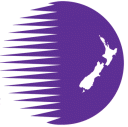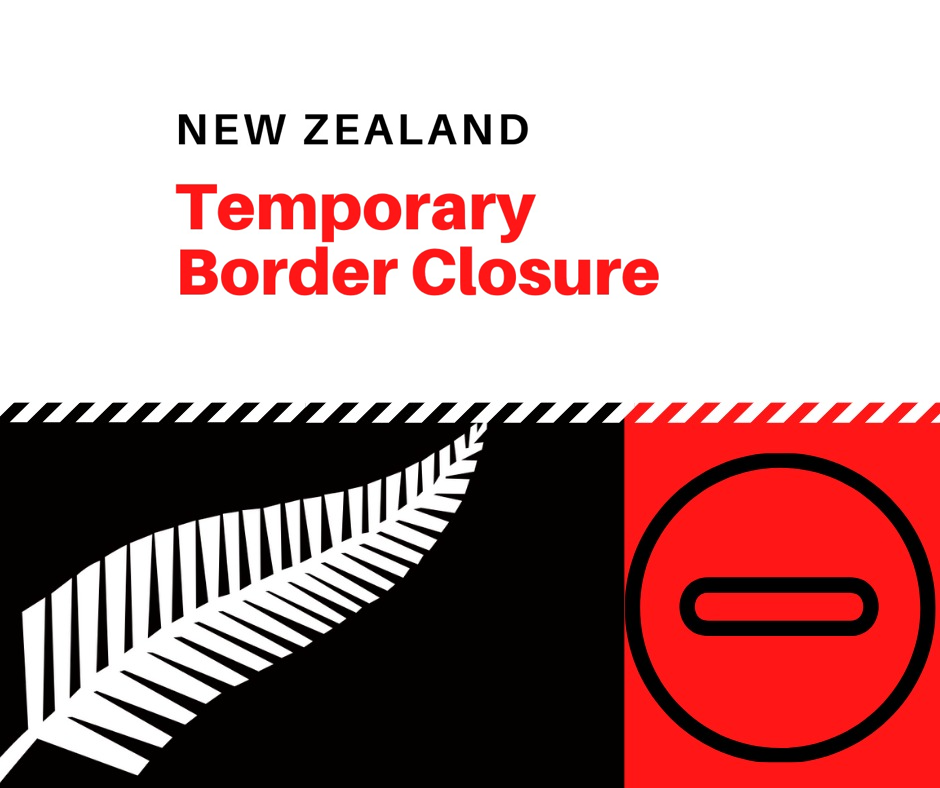Key information on current border closure and exceptions.
Limited travel ban exceptions
The New Zealand border is currently closed to almost all travellers to help stop the spread of COVID-19. The travel ban applies to all arrivals into New Zealand whether it is by air or sea.
Superyacht and pleasure craft crew
Crew (including Australian citizens not resident in New Zealand) travelling on superyachts and pleasure craft are not exempt from the closure of New Zealand’s border, and current immigration instructions state they must be refused entry permission unless they meet one of the exceptions.
New Zealand citizens and residents returning to New Zealand may travel to New Zealand and do not need any formal exemption. If the New Zealand resident visa was granted outside of New Zealand and the holder is travelling to New Zealand for the first time on that visa, or the resident visa has expired travel conditions, the travel ban is applicable.
There are a limited number of exceptions for other travellers who should seek approval from Immigration New Zealand before travelling.
Note: The starting point for consideration is that the New Zealand border is closed for all but critical travel, and that protecting public health in New Zealand is paramount.
Who may travel to New Zealand without first seeking approval
New Zealand citizens, permanent residents and residents with valid travel conditions (excluding people granted a resident visa outside New Zealand and who are travelling to New Zealand on that resident visa for the first time) may travel to and enter New Zealand. They do not need to use the exceptions process below.
While a partner, dependent child or legal guardian travelling on the same flight as the New Zealand citizen or resident does not need to seek approval in advance, Immigration New Zealand recommends they use the process below to provide certainty of travel to New Zealand rather than risk being denied boarding.
Who should seek approval before travelling to New Zealand
There are a small number of additional, limited exceptions to the ban on travelling to and entering New Zealand. This applies to people who already hold a temporary New Zealand visa as well as to people who don’t have a New Zealand visa.
The following people should seek approval from INZ using the limited exceptions process:
- Partners, dependent children (aged 24 years and under) and legal guardians of New Zealand citizens and residents
- Australian citizens and permanent resident who normally live in New Zealand
- People with one of the following critical purposes in New Zealand:
- Essential health workers
- Other essential workers who are specifically agreed to by the New Zealand Government
- Samoan and Tongan citizens making essential travel
- New Zealand-based partners and dependent children (aged 19 years and under) of a work or student visa holder who is in New Zealand
- Critical humanitarian travel.
People seeking to travel to New Zealand because they meet one of these limited exceptions should first request consideration using the online exceptions request form below. If travel is considered likely to be justified, despite the travel ban, then they may be asked to provide further information so a special visa or variation to their current visa can be granted. The starting point for consideration is that the New Zealand border is closed for all but critical travel, and that protecting public health in New Zealand is paramount.
Critical purposes for travelling to New Zealand
Essential health workers
A healthcare worker is a current or new (start date March to June 2020) employee who holds a key position working in:
- a District Health Board
- the New Zealand Blood Service
- hospice or palliative care
- a primary care practice such as urgent care or a medical or healthcare centre
- aged residential care, respite or continuing care facility. This includes care in a person’s home or community facility.
Eligible positions are:
- medical doctors
- nurses
- midwives
- psychologists
- physiotherapists
- psychiatrists
- technical and support staff working in:
- Theatre
- Laboratory
- Radiology
- Cardiology Blood service
- Nuclear medicine
- Oncology
- Haematology
- Pathology
- Hyperbaric medicine
- Mortuary
- Research Staff
- caregivers and support workers within the following sectors:
- Aged Care (including rest homes), Child Health, Palliative and Hospice Care
- Mental Health and Addiction
- Forensic health
- Disability support
- Home and community support care.
Evidence of qualifications and registration may be required.
Partners and dependent children may also be included in the request. You must be able to prove you are in a genuine and stable relationship with your partner.
Other essential workers
The Government will specifically identify and consider exceptions for other essential workers critical to delivering the response to COVID-19 and/or maintaining critical infrastructure.
This is a limited group. These essential workers are not the same as the holders of Essential Skills work visas, or people seeking to begin working in an essential services. Employers should first contact their sector’s lead agency for advice on allowing employees to travel as essential workers.
Citizens of Samoa and Tonga
Citizens of Samoa and Tonga can submit a request for an exception if they are making essential travel to New Zealand. Any family member applying for an exception must have their own critical purpose for travelling to New Zealand.
Travel to and from the Pacific Islands
New Zealand citizens from Tokelau, Cook Islands and Niue travelling to New Zealand must isolate themselves for 14 days upon arrival.
Travellers must also obey COVID-19 Alert Level 2 restrictions – stay in your accommodation.
Travellers must meet the entry requirements of the country they are travelling to. Check flight availability and entry requirements before starting your journey. Health Officers are screening travellers from New Zealand to Pacific Islands. Airlines will not allow any passenger with COVID-19 symptoms to board.
Safe Travel | Pacific Island countries
COVID-19 countries and areas of concern | Ministry of Health
COVID-19 symptoms | Ministry of Health
COVID-19 info: Pacific languages
COVID-19 info: other languages
Partners and dependent children of New Zealand work, student or visitor visa holders
This exception is only for partners and dependent children who already hold a work, student or visitor visa and normally live in New Zealand. The partner or parent must also be in New Zealand (that is, the person making the request is outside New Zealand and the parent or partner is inside).
Humanitarian exceptions
An immigration officer may make a humanitarian exception to the travel ban in extremely limited cases taking into account the following factors:
- connection to New Zealand, the applicant’s primary place of residence and their current location
- how long they have been away from New Zealand
- other options available to the applicant
- the impact of not giving an exception
- whether the Ministry of Health or a District Health Board supports the provision of any medical treatment that may be required.
Partners and dependent children
If you are applying as a partner or dependent child of a New Zealand citizen or current visa holder, or if you are being included in your partner or parent’s request, you must be able to demonstrate your relationship. For partners, this includes demonstrating that you are in a genuine and stable relationship.
People applying as the partner of a New Zealand citizen or resident will be assessed against the evidence they are able to provide in their circumstances. They will not be granted a partnership-based visa, and if they apply again in New Zealand will have their partnership assessed again in more detail.
People who do not hold a current visa to travel to New Zealand
People who don’t hold a current visa to travel to New Zealand (with the exception of Australian citizens and permanent residents) must:
- meet health and character requirements for temporary entry
- be a bona fide applicant
- meet the funds or sponsorship requirements for visitors
- meet onward travel requirements
- have a critical purpose for travelling to New Zealand (unless they are the partner, dependent child or legal guardian of a New Zealand citizen or resident and travelling with them to New Zealand, or an Australian citizen or permanent resident)
People who already hold a visa to New Zealand must:
- have a critical purpose for travelling to New Zealand (unless they are the partner, dependent child or legal guardian of a New Zealand citizen or resident and travelling with them to New Zealand, or an Australian citizen or permanent resident)
- Still meet the requirements of the visa they hold (for example be employed if that employment was required to get the visa)
People who have applied for a visa (but it has not been granted will either have their substantive visa assessed and granted or granted a special visitor visa depending on their circumstances.
Submitting a request to travel to New Zealand
Request for travel to New Zealand
We understand your situation may be urgent. We aim to respond to requests within 2 working days, however it may take longer depending on the volume and complexity of requests.
Before submitting a request, consider the availability of flights to New Zealand and travel restrictions for any country you may need to transit on the way.
Foreign nationals in New Zealand
Foreign nationals in New Zealand can now travel domestically in order to reach Christchurch or Auckland airport to take an international flight.
They can drive, take ubers, taxis or public transport, or take domestic flights from Auckland, Wellington, Nelson, Christchurch or Dunedin airports, in order to connect with a commercial or chartered international flight.
They must meet strict health criteria before they travel. The criteria and other information is available here on the Covid19 site.
Foreign nationals should contact their consulate or embassy for advice and support.
Foreign Minister media release
Airlines will not allow unwell passengers to board. Travellers must contact their airlines and other travel providers for the most up-to-date information about flight availability, transit and entry eligibility for areas affected by border measures.
Emergency consular assistance for New Zealanders +64 99 20 20 20 (if overseas) or 0800 30 10 30 (if in New Zealand).



